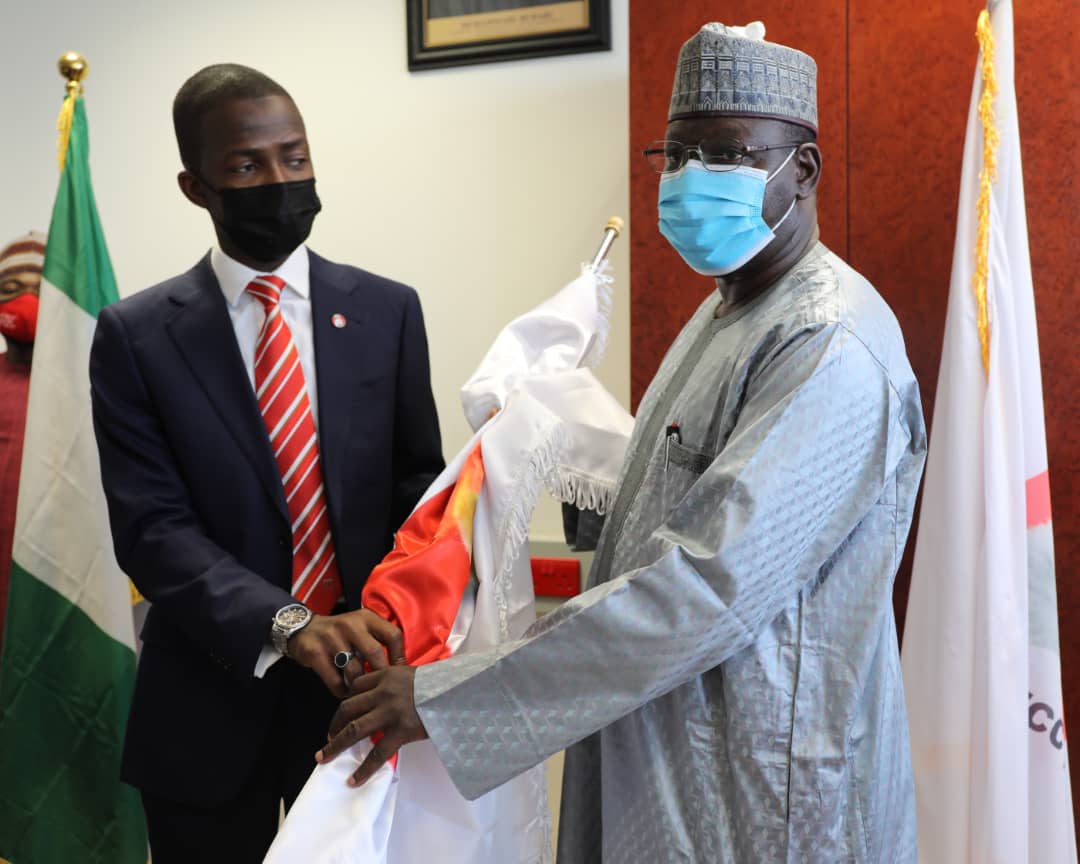By Prince Timi Alagbo
The Economic and Financial Crimes Commission, EFCC is a global brand and Nigeria’s first-string anti-corruption agency. Outcomes in the Commission’s investigation, prosecution and enlightenment have in the 18 years of its existence, made it the sole model in African destinations.
This was possible following the successive stretch of good leadership in the commission. From Mallam Nuhu Ribadu, the premier chair of the commission to Mohammed Umar Abba, who just bid goodbye, each of the previous five leaders of the Commission brought excellence and acumen to the table.
On February 16, President Buhari nominated the youthful Abdulrasheed Bawa as the commission’s chair and on 24th of the same month, he got a Senate nod for the job. With these, he became the first regular staff to mount the commanding height of the commission and the youngest to boot.
While he parades an impressive resume in anti-corruption engagements, his hands-on experience as a detective and former head of the commission’s Ibadan, Port Harcourt and Lagos zonal offices equips him supremely well for both the field and administrative challenges of the job.
As he mounts the saddle, he needs not be reminded that he would be writing his testimonial with every action or inaction of his. Like every new leader on a new job, Bawa comes with a lot of promises and has raised public expectations, a notch higher, largely because of the generational shift he represents, the spark he has shown and the propriety questions his nomination threw up in the public space.
Like a golden fish, there will be no hiding place for him and what he does.
The public has noted that he has been making the right commentaries. He says that more than ever before, the commission would be ahead of the devices of the tribe who thrives on economic and financial crimes. He talks of human capital capacity building in the commission, and an attention to their welfare. While it is only one or two of his predecessors that were stellar in a few of these directions, Bawa can walk these talks if he can summon just the will.
For me, one of the starting points for all the battery of things he has outlined to achieve should be the need to the key the lowest rung of the commission’s detectives, trained for arm-bearing into what they were trained for in military institutions such as the Nigerian Defence Academy, NDA and Air Force Base.
Reports have it that after expending the Commission’s lean resources to equip this cadre of staff for core security duties, successive leaderships of the Commission would simply consign them to office messengers. Indeed it is a painful irony that the young errand blokes were actually trained to be armed security personnel of the commission, honed in weapon handling and security operations in the nation’s A-list military institutions.
While this aberration is said to anchor on the preference of successive police leaderships of the commission, to work with their own men, Bawa should move in the trajectory of handing the commission’s security operations to the commission’s staff, trained for the purpose. As a leader, he should not shy away from taking initiatives and exploring new frontiers, especially if such are in the right direction and perhaps cost efficient to the commission too.
While it is good news that the commission has begun the process of weeding out police officers in its ranks in line with the recommendation of the Justice Ayo Salami judicial panel, reports have it that the departing police officers would likely be substituted with personnel of the State Security Service, SSS and probably a bunch from National Intelligence Agency, NIA.
It is slam-dunk that the reason for which the EFCC is on a roller-coaster of switching from police security to the now likely that of SSS and NIA is because it has security personnel to call its own.
At any rate, Bawa must interrogate whatever is the reason for putting the designated security staff of the commission through the crucible of top notch military training in arms handling, put them again through months of mental demilitarisation, civil Intel gathering and anti-corruption courses in the commission’s academy, only to turn them to office messengers.
Over the years, the EFCC has striven to align its operations with global best practices, having the FBI as blueprint, but the commission cannot be said to have truly achieved or approximated this, largely because of the overwhelming and ever present extraneous influences and the miscellaneous collection of field staff from the police and the commission because often times, some of these external security officers foisted on the commission are already weaned on visions, attitudes and temperaments that diverge from that of the commission-groomed staff.
As it were with the police, the EFCC under Bawa is still unlikely to make input in the choosing of the new security personnel that would take over from the police. But he could redeem the impropriety in quick turnaround time by equipping the commission’s staff that have over the years been specially trained to bear arms.

Preparatory to Bawa’s assumption of office, a widespread promotion was implemented by his predecessor, Mr Abba, an assistant commissioner of police, ACP. This, to a good measure would save the new helmsman the whining and pinning from erstwhile army of staff, stranded years-on-end on one grade level and allow him the breather he needs to implement his agenda and study the staff so that he can see through the unholy schemes of some of them, who would grab any chance to game the system.
For a good measure, Bawa must not fall for the schemes of some of the commission’s retiring management staff, who are adept in playing a miscellany of ethnic, religious and filial cards to get immediate contract appointments upon retirement, in order not to relinquish their exalted positions.
The public wants to see that a management staff due for retirement either on account of age or length of service, makes way and goes home to enjoy his or her deserved rest.
For one, this would create room for equally qualified new brooms or subordinates to come on board with fresh ideas and to prove their mettle. It is also fair and equitable.
The new EFCC boss can’t be dumb not to see through a staff who’s ingratiating himself or herself with him just to get an objectionable favour that could be used somehow, someday, against him. The ethnicity of a staff, his tongue and how he worships his god should cease to be the denominator in who gets what in the commission.
Some actions and policies of most of the past leaderships of the commission, drew flacks and public ire for being tempered by ethnic, religious or nepotistic considerations. As he rides in the wave of high public expectations, it should not be lost on the new sheriff that just one single goof could be all it would take for his personality and image of the commission to crash down in a heap in the eyes of both the staff and public.
The treacherous anti-corruption terrain requires a strong and savvy character to navigate. It beckons on a leader who can strike a balance between public expectations and how state actors want the game to be played. If this balance shakes out under Bawa, it would for the very first time lower the decibel from the public against the commission for a perceived skewed anti-corruption fight.
The public is a bigger stakeholder in the EFCC than the government. And deserves not to be regarded with cavalier. The new man must thread the path to higher moral ground than his predecessors, else we may see nothing different from a new wine in old wine skin or a man who gives no hang if his name would be written in ashes at the end of his tenure.

It is therefore compelling that the new dawn in the commission must not only end with generational shift in leadership.
There must be a paradigm shift too. Being his first crack at acting on the national stage, Bawa knows that he can only emerge a crackajack or jackass, depending on the choices he makes and or the ones that would be foisted on him.
What is kosher must trump the pull to minister to primordial promptings. To achieve this, Bawa should bin the extant polarising template for doing things in the commission and strive to be the new dawn for everyone and all stakeholders.
•Alagbo is an Abuja-based civil society activist